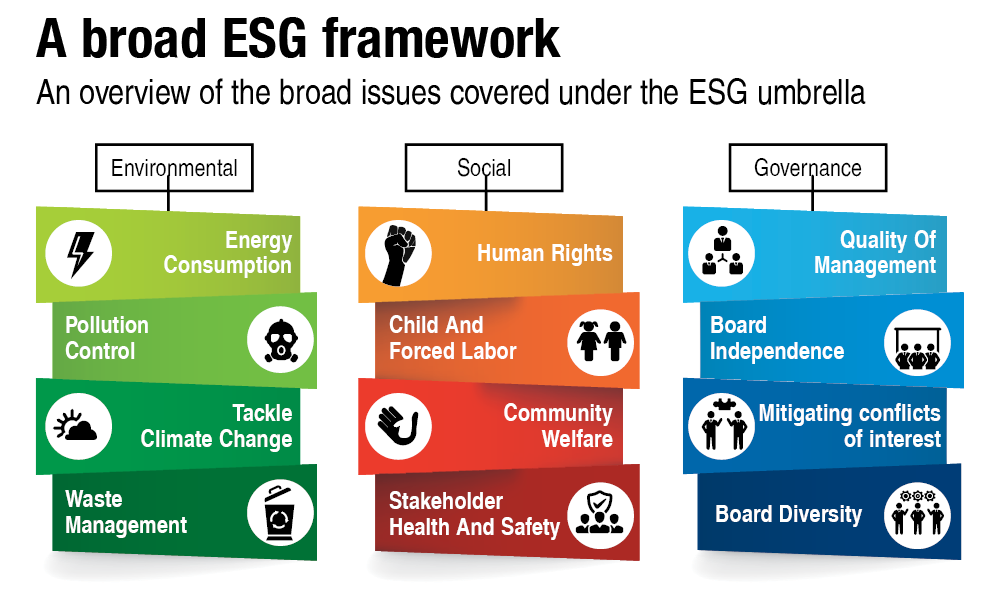ESG Investing: What is It and Why Should Investors Care?
July 2, 2022

Investors have just come through one of the worst first halves of the year for the market.
Understandably, thinking about where the stock market is headed over the next 10 months – never mind the next decade – is a potentially depressing thought.
However, as investors, we need to focus on trends that will have a meaningful impact on our portfolios over the long term. Not just the next recession.
One of the biggest trends that has recently taken the investment industry by storm is Environmental, Social, and Governance – or more commonly known as “ESG” – investing.
Kicking off a series on ESG investing, I’m first going to take a look at whether it really matters to everyday investors like ourselves? And should investors care?
Here’s a quick breakdown of what you need to know about ESG investing.
Measuring the impact on society
It may sound like a lot of “fluff” but ESG investing has a crucial core tenet at its heart; does a business have a positive impact society as well as its stakeholders and, if so, can it be translated into above-average long-term investment returns?
Before that, it’s important to understand when the seeds of ESG investing were planted.
Essentially, ESG investing can be traced back to the idea of “impact investing” that was first brought to the public’s attention by Sir Ronald Cohen – traditionally seen as the father of impact investing.
His initial thought was to bring an investment/business mindset to philanthropy by trying to generate positive (and crucially measurable) social and environmental impacts while also delivering a positive investment return.
Broad overview of ESG
How has that morphed into ESG investing or company-specific ESG initiatives that we see today?
Well, most investors have tended to focus on the “E” of environmental given the push towards a “net-zero carbon” future and the very obvious negative effects of climate change.
Yet the “S” and the “G”, of social and governance respectively, shouldn’t be ignored by investors.
As you can see from the basic framework below, social issues such as human rights (including gender and racial equality) and community welfare are starting to become more pressing concerns for investors when analysing companies.
 Source: valueresearchonline.com
Source: valueresearchonline.com
Meanwhile, governance issues, like board independence, conflicts of interest and equal voting rights, should be monitored closely to ensure that shareholders are being treated fairly by management.
Risk management
More than anything, ESG investing – at least for long-term investors – is more about mitigating the risk that is associated with being invested in any particular company.
That’s because social issues, such as accusations of sexual harassment by senior management, to environmental concerns, like illegal dumping of waste materials, can have an incredibly negative impact on the share price of a company.
How long that issue can weigh on a share price is anyone’s guess and any of these types of problems can also point to broader problems with a company’s culture.
Still looking for alpha
One recent concern about ESG investing has been its underperformance versus the broader market so far in 2022.
However, one of the big reasons for this has been the tendency for ESG funds to be heavily weighted towards technology stocks (due to lower carbon footprints and more disclosures).
They also omit carbon-intensive sectors such as energy – namely oil & gas – which has outperformed strongly so far this year. But that’s a short-term issue of performance.
At the end of the day, though, investors will need to look harder at what they’re investing in – whether it’s a company, mutual fund or exchange-traded fund (ETF) – when it comes to ESG.
That’s because these issues will start to become more and more prominent as time goes on.
Investors should be focusing on the “sustainability” aspect of a business and whether it has what it takes to be thriving in 10 or even 50 years’ time.

Tim Phillips
Tim, based in Singapore but from Hong Kong, caught the investing bug as a teenager and is a passionate advocate of responsible long-term investing as a great way to build wealth.
He has worked in various content roles at Schroders and the Motley Fool, with a focus on Asian stocks, but believes in buying great businesses – wherever they may be. He is also a certified SGX Academy Trainer.
In his spare time, Tim enjoys running after his two young sons, playing football and practicing yoga.







